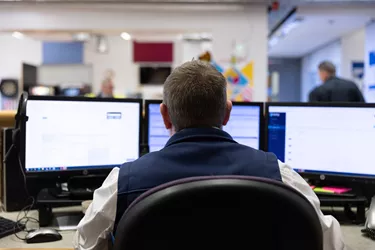Producing mental health information: why Mind needs reviewers
Tom blogs about the vital role reviewers play in the production of our info.
While, as authors, we carry out a wide range of research and have a broad range of mental health knowledge, we are not experts on everything.
"There’s a big difference between knowing all about something on paper or from hearing people speak about it, and having had the experience yourself."
Even if we do have experience of the mental health problem we’re writing about, not everybody’s experience is going to be exactly the same as ours, it would be impossible for any one person to speak on behalf of everyone with depression, for example.
Likewise, someone with experience of psychosis may not have a lot of insight into what it’s like living with something like body dysmorphia.
This is where our reviewers come in.
Their in depth personal experience of the mental health problem a new article or booklet is about, allows them to think about, and tell us, what they would have wanted to read when they were first looking for information about the problem.
"Often, reviewers think of an angle that hasn’t occurred to us."
A fresh set of eyes or ears looking at what we are writing without knowing all our processes for producing work or knowing what the author ‘meant to say’ is also really valuable.
They might spot an area where what we’ve said isn’t quite right, assumes too much knowledge or needs a better example to explain it.
Or they can say “that’s all what’s supposed to happen, but the reality is…” with an expertise that academic papers, NHS briefings or NICE treatment guidelines can’t have.
Our reviewers are there to make sure our information is helpful for real people who are worried about their health.
They make sure our information is understandable, relevant and useful to the people we are trying to reach.That’s why they are such an important part of our team and why we couldn’t do the work we do without them.
Our reviewers are there to make sure our information is helpful for real people who are worried about their health. They make sure our information is understandable, relevant and useful to the people we are trying to reach. That’s why they are such an important part of our team and why we couldn’t do the work we do without them.


Information and support
When you’re living with a mental health problem, or supporting someone who is, having access to the right information - about a condition, treatment options, or practical issues - is vital. Visit our information pages to find out more.
Share your story with others
Blogs and stories can show that people with mental health problems are cared about, understood and listened to. We can use it to challenge the status quo and change attitudes.

















